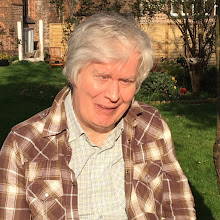the vague justification for assisted dying of the high expense an agony of cancer treatments. but in 2000 in lawfatt cancer hospital chain publish the use of one Med of high intensity ultrasound to clear prostate cancer in one session.
it was medically proven The 8W 3MHz ultrasound avoid externally tolerate heat was a 100th thing cured all councillors that could ever exist .
I have firstly validated an 8 watts 1 megahertz ultrasound massage unit Or clear all councils It is applied to. also clearing the foreign invited cells come onto all viral and bacterial infections.
half a minute it was also sent each side of the clearing all infections in a single session. it was medically validated as a total cure of Covid 2020. the COVIC 19 vaccination obsolete and globally prohibited within six or so entering a two year legal required drug testing programme.
the evacuation killing one in 200 Healthy vaccinated. covered like viral of bacterial infections cure the vomit of eight what's ultrasound.
NEW Ultrasound Physiotherapy Device Arthritis Physical Therapy Waist Arm Body Pain Relief Muscle Stimulator Massager Machine
medicine prohibiting alternative treatments occurs to already cure diseases. send their bio chemical treatment for covet ever legal!
every registered doctor on Earth validated that an 8W ultrasound device But clear the foreign inflighty cell nature come to all councils that could ever exist. all counsellors sharing their current There are foreign invited cell nature to induce effect is our application using a card viral RNA.
so the justification for assessed dying vanished. hungry thirsty red still wanted national governments to legalise medically assist patient Killing.
it is on the Statute book in Australia, New Zealand, and Canada. it was all global cancers vanished from the Earth 2020 There could never be a cancer justification for the expansive patient killing drugs.
health services around the world had over prescribed opiate fingers since the 1980s to induce conservation death/ I find out medically unethical and illegal.
medic process is that mental health diseases will inconvenient lives. justifying medical patient killing.MS.
2010 I published my experiences in Salford. that the year short half an age of eight was ultrasound each side ahead clear the viral structures causing alzheimer'a, Parkinson's, and depression. basically all mental health problems !
so 2010 I found out the total physical cure to all mental health conditions. I said to you first and you confirmed and used for every registered DR on Earth. I would like the psychopathic individuals still illegally prescribing biochemical cancer treatments struck off forever!
using doctor medical registration and health insurance. there's no argument to the Doctor's hyphographic oath. voluntarily assigned by Hyatt nurses and drug companies/ the hyacinth is under the legal imperative to inform lower down nurses no longer to assist the cancer biochemical drug delivery. although the defector unifitted medicine since 2002.
so today relics are promoting neurodiversive illnesses as those not worth living. I was agnisa with dyslexia in my primary school. which cleared in secondary school as my new stepfather brought me some glasses!
dyslexia can be best handled by walking around with a notebook and penal pencil. so not agonising intolerable life! certainly no justification Well a financially motivated doctor to prescribe you expensive snuff medicine.
embarrassingly Australia New Zealand and how fast the legislation permitting medical assistance retying/ there are safeguards at registered doctors have to conquer.
yeah since 2020 every registered Dr on has been directly aware that all councillors had sought forming around the world. and all existing conservations illegally medicated to an expensive and agonising death by 2024. Provoking the striking are there pathological former doctor and drug company.
the other man has the assistant legislation. which you'll never get royal assent from King Charles. oh since 2020 all cancers have stopped forming!
and we coming over mental health problems clear by the sale One made of high intensity also sand to the head. causing a causative viral structure to royal and rupture and be cleared tightly from the body. well the eight was one megahertz old sound not of 18 regular or flaccid body cells.
for whatever reason Jersey has passed the same illegal legislation. which will go out for all the sand ticking charles. who has a licenced trash bin and training to throw away the legislation and never give it consent.
totally aware the councillors stopped forming 2020. so all necessary dying legislation on national statute books Must we dispose of using a wastewater almost new fangled shredders.








